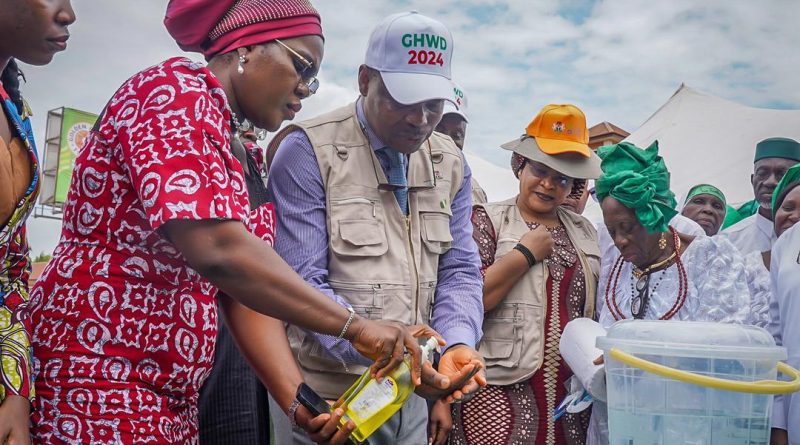FG To Nigerians: Handwashing Culture Is Crucial For Public Health
By Bukar BOLORI
The Federal Government has encouraged Nigerians not to shun the handwashing culture, insisting that clean hands are crucial for public health and global health security.
Speaking at the commemoration of the Global Handwashing Day in Abuja on Tuesday, the Minister of State for Environment, Dr. Iziaq Salako while noting that about 1.8 million children under the age of 5 die each year from diarrheal diseases and pneumonia, the top two killers of young children around the world, said: “Promoting proper handwashing in Nigeria is a strategic move to equip the nation in its fight against disease outbreaks as well as global threats such as antimicrobial resistance (AMR).”
He lamented that children and other vulnerable population are more prone to such diseases like diarrheal diseases and pneumonia, because of poor knowledge about the importance and practice of effective handwashing.
In order to create and promote awareness and understanding about the importance of handwashing as an easy, effective and affordable way to prevent diseases and save lives, noting that the United Nations General Assembly in 2008 declared 15th October of every year as Global Handwashing Day.
The Minister said this years’ theme: “Why Are Clean Hands Still Important?” reflects an important question which provokes the thought that irrespective of the significant progress made in promoting handwashing with soup under running water, “our journey is far from over. This theme therefore confronts every sector and every individual with the reason to continue practicing and promoting effective handwashing and not to neglect this simple but powerful practice seeing that the benefits are limitless.”
He stated that: “Hand hygiene inclusion in government plans and funding not only improves health but also boosts the economy by reducing the burden on health services and promoting high healthcare standards.
“It also contributes to attaining multiple targets of the Sustainable Development Goals on Water Sanitation and Hygiene (WASH), nutrition, education, health and economic growth.”
He stressed that: “For businesses including markets, effective hand hygiene practices can significantly reduce the spread of infectious diseases leading to fewer sick days for businessmen/traders, and increased productivity. This enhances marketplace well-being, supports public health, and strengthens overall resilience against disruption of business.
“In schools and workplaces such as hospitals and offices, clean hands are important in preventing diseases including hospital-acquired infections, ensuring consistent school/work attendance, and increased productivity.
“In the home, clean hands are still very much important to maintain good health by reducing the transmission of infectious agents (germs), and lowering the risk of infections such as diarrhea, typhoid and respiratory infections. Clean hands are still important in the home to prevent cross-contamination of food thereby reducing the risk of foodborne illnesses. Very importantly clean hands help to protects vulnerable family members such as newborns, elderly and immunocompromised individuals who are more susceptible to infections.”
The minister insisted that: “Handwashing with soap under running water helps to reduce diarrhoeal diseases by 30%, respiratory infections up to 20%, and can also help to reduce the transmission of outbreak-related diseases such as cholera, Lassa fever, Ebola, COVID-19, m-pox etc. Handwashing is protective against up to 50% of avoidable infections acquired during health care and also prevents the spread of antimicrobial resistance.”




